NewsCynthia Astle | February 15, 2022
With Historically Black Colleges and Universities in the news — tragically — at the start of Black History Month, The United Methodist Church is highlighting the 11 HBCUs that are supported by its Black College Fund. The UMC supports the largest number of HBCUs receiving funding from any U.S. denomination.
Three of the 14 HBCUs across the nation that received bomb threats at the beginning of February are affiliated with United Methodists:
Rust College, Holly Springs, Miss., founded in 1866 and one of the remaining five historically Black colleges in America founded before 1867.
Bethune-Cookman University, Daytona Beach, Fla, founded by mid-20th century educator Mary McLeod Bethune, an adviser to President Franklin D. Roosevelt.
Philander Smith College, Little Rock, Ark., founded in 1877 as the first four-year college for Blacks in Arkansas, and today a college with 21 specialties including a noted public health program.
While the racist motivations of those who would threaten Black campuses is a painful reminder of America’s unresolved history, leaders of these HBCUs hope to shine a light instead on the reasons the schools exist and the good they do.
After Abraham Lincoln’s Emancipation Proclamation freed Black slaves in the South during the Civil War and the 13th Amendment to the U.S. Constitution abolished slavery altogether, Methodists began establishing schools, colleges and universities to educate former slaves.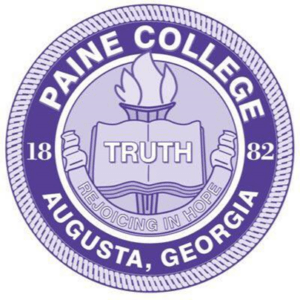 Most of these colleges were founded in the late 19th century as Methodists in both the southern and northern branches sought to give Black Americans in the South the higher education that had been denied them. For example, “Paine College was the brainchild of Bishop Lucius Henry Holsey, who first expressed the idea for the college in 1869. Bishop Holsey asked leaders in the (Methodist Episcopal) Church South to help establish a school to train Negro teachers and preachers so that they might in turn appropriately address the educational and spiritual needs of the people newly freed from the evils of slavery.”
Most of these colleges were founded in the late 19th century as Methodists in both the southern and northern branches sought to give Black Americans in the South the higher education that had been denied them. For example, “Paine College was the brainchild of Bishop Lucius Henry Holsey, who first expressed the idea for the college in 1869. Bishop Holsey asked leaders in the (Methodist Episcopal) Church South to help establish a school to train Negro teachers and preachers so that they might in turn appropriately address the educational and spiritual needs of the people newly freed from the evils of slavery.”
Subsequently Paine, named for Bishop Robert Paine who helped organize what is now the Christian Methodist Episcopal Church, was initially funded by “a $2,000 gift from a white minister of the Methodist Episcopal Church South and $16 raised by a CME minister — penny by penny from former slaves.”
Every HBCU affiliated with the Methodist tradition can tell similar stories of sacrifice and perseverance. The other eight such schools are:
Bennett College, Greensboro, N.C., one of only two HBCUs nationwide for women, named for early 20th century educator Belle Bennett, noted for her schools for Black students.
Claflin University, Orangeburg, S.C., the first college in the state to welcome all students, regardless of race or gender and frequently listed among best-value U.S. colleges.
Clark Atlanta University, Atlanta, formed in 1988 by the consolidation of Atlanta University, which offered only graduate degrees, and Clark College, a four-year undergraduate liberal arts institution.
Dillard University, New Orleans, born from the union of New Orleans University and Straight University and named for 19th century education reformer James Hardy Dillard.
Huston-Tillotson University, Austin, Texas, renowned for its music and education departments.
Meharry Medical College, Nashville, founded in 1867 as the first medical school for African Americans in the South and a leader in health care for Black communities during the coronavirus pandemic.
Paine College, Augusta, Ga., founded in 1882 as the result of a collaboration between Black and white Methodists, specializing in small enrollments that provide one-on-one mentoring.
Wiley College, Marshall, Texas, the first HBCU west of the Mississippi that gained fame in the 21st century thanks to Denzel Washington’s film The Great Debaters.
While retaining their historic liberal arts emphases, United Methodist HBCUs also offer pathways for Black students to obtain degrees in critical STEM (Science, Technology, Education and Mathematics) disciplines.
According to an October 2021 issue of Anti-Racism Daily:
One way HBCUs aid students in STEM and other disciplines is by keeping tuition lower than other colleges, including state universities. According to U.S. News and World Report, HBCUs typically charge tuition that can be as much as half the cost of a comparable private college in the same area.
Despite Methodists’ good intentions, all HBCUs have struggled in the past with their finances. As recently as 2020, according to a 2020 article on The Conversation website, one in 10 HBCUs already were financially fragile before being hit by the stress of the coronavirus pandemic. In contrast, the Black College Fund has served as something of a cushion against hard times for United Methodist HBCUs.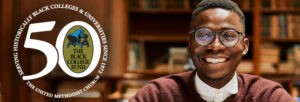 Celebrating its 50th anniversary this year, the Black College Fund, administered by the church-wide General Board of Higher Education and Ministry, has been crucial in the development of UMC-related HBCUs. As part of the official UMC budget, the Black College Fund is included in what’s known as “apportionments,” a fair-share system of allocating funding for ministries beyond local congregations. The Black College Fund provides scholarships for students and development capital for HBCUs.
Celebrating its 50th anniversary this year, the Black College Fund, administered by the church-wide General Board of Higher Education and Ministry, has been crucial in the development of UMC-related HBCUs. As part of the official UMC budget, the Black College Fund is included in what’s known as “apportionments,” a fair-share system of allocating funding for ministries beyond local congregations. The Black College Fund provides scholarships for students and development capital for HBCUs.
Alumni and leaders of these historic institutions insist there remains a need for their unique presence.
“Why do we need Black institutions? People forget their segregated history,” said Walter Kimbrough, president of Dillard University in New Orleans. “For example, Tulane (University in New Orleans) was started specifically ‘to educate white students.’
Walter Kimbrough
“Today HBCUs still play a role in the broad range of American higher education,” Kimbrough added. “HBCUs have always been places that did not discriminate against people; many HBCUs are more diverse than a lot of predominantly white institutions. When I got my bachelor’s degree at the University of Georgia, I had no Black professors.”
A major hurdle for all HBCUs is the false perception that historically Black colleges are academically inferior to predominantly white universities. A prime, if fictionalized, example of this prejudice was shown in the 2007 film The Great Debaters, about Wiley College’s historic win in a national debate championship. In 1935, the Wiley College debate team defeated the reigning national debate champion, the University of Southern California, depicted as Harvard University in The Great Debaters. The film featured Oscar-winning actor Denzel Washington, who subsequently donated $1 million to restart Wiley’s debate team.
The successes of Methodist-related HBCUs extend well beyond this one example, though.
Henry Tisdale is former president of Claflin University in Orangeburg, S.C. A Clalfin alumus, he also went on to earn a doctorate in mathematics from Dartmouth University. Today, Tisdale cites Claflin’s chemistry department, accredited by the American Chemical Society, as an example of the strategic plan’s success with STEM disciplines: “We became only the second private school in South Carolina to have an ACS-approved chemistry program and the only HBCU.”
Henry Tisdale
In addition, Claflin’s leaders became aware that there was no college nursing program between Charleston and Columbia in South Carolina, Tisdale said. Today Claflin has one of the strongest nursing schools in the state, offering both bachelor’s and master’s degrees in nursing science.
Claflin has become a valued pillar of the Orangeburg community, Tisdale added. In addition to its cultural contributions such as an annual performance of Handel’s Messiah, Claflin recently became home to a forensic science center established through faculty collaboration with the Orangeburg Department of Public Safety.
Claflin’s record of excellence has earned it a spot on U.S. News & World Report’s annual ranking of best college values for 12 years. In 2012, the university received an award from the Bill and Melinda Gates Foundation for its high rates of student retention and graduation.
Like Claflin, Dillard University in New Orleans also has acted upon strategies for achieving academic excellence and community leadership, said outgoing president Kimbrough.
“Dillard was sort of in the shadows when I arrived, so my time was to tell the outside world that Dillard is one of the great institutions in higher education,” he said. Located in New Orleans’ Gentilly neighborhood of middle-class Black families, Dillard is home to Louisiana’s oldest nursing program and is the second-ranked U. S. college producing undergraduates in physics programs. One of Dillard’s top-rated academic specialties is its popular film production program that taps into New Orleans’ identity as the “Hollywood of the South.”
Located in New Orleans’ Gentilly neighborhood of middle-class Black families, Dillard is home to Louisiana’s oldest nursing program and is the second-ranked U. S. college producing undergraduates in physics programs. One of Dillard’s top-rated academic specialties is its popular film production program that taps into New Orleans’ identity as the “Hollywood of the South.”
Dillard strives to be its community’s “living room” for “critical conversations,” Kimbrough said. The university has been the site of mayoral and gubernatorial debates on key civic issues, along with sponsoring events by and for neighborhood associations.
The Dillard president put himself into a public health debate in September 2020 when he volunteered to participate in a clinical trial for a COVID-19 vaccine. As an example of the university’s commitment to community service, Kimbrough’s move was significant because Black people suffered higher rates of infection and death early in the coronavirus pandemic, and health care was, and remains, poor in many Black communities. In answer to those concerns, Dillard partners with a local health care provider, DePauw Community Health, that offers free care to the surrounding community from a campus clinic.
At the other end of the spectrum from large universities like Claflin and Dillard, Paine College in Augusta, Ga., typifies a quality of educational excellence through nurture, said its president, Cheryl Evans Jones, who has been on the Paine faculty and in administration for 29 years. In that respect, she said, Paine continues the tradition of HCBUs that brought higher education to those kept out of academia by slavery and racism.
Cheryl Evans-Jones
“Paine is a relatively small institution, but we have a matrix of competent, professional faculty and staff,” Jones said. “We foster a family type atmosphere where faculty and staff get to know students by name. That doesn’t mean we require less of students. Our first value is excellence — in everything.
“We take students who may not be able to gain admission into other institutions, who may be underprepared or unable to go elsewhere,” Jones said. “In our small, nurturing environment they do well.”
Begun by a collaboration between what were then the Methodist Episcopal Church, South, (now the United Methodist Church) and the Colored Methodist Episcopal Church (now the Christian Methodist Episcopal Church), Paine offer majors in five academic departments: business, media, mathematics, science and technology, and humanities and social sciences.
Like Claflin and Dillard, Paine also has forged strong ties with its surrounding community.
“We’re the only HBCU in the central Savannah River area,” Jones said. “We encourage our students to get involved in service and community projects in Augusta. Our athletic teams do service projects such as food banks and tutoring in schools, so people from the community get to see our students.”
For a small school, Paine has a strong athletic presence. The college boasts men’s and women’s basketball, track and field, women’s volleyball and softball, men’s baseball and, as could be expected, men’s and women’s golf, given that its community is home to the prestigious Augusta National Golf Club. This year, Augusta National established a golf scholarship in memory of Paine benefactor Lee Elder, the first Black golfer to play in the PGA Masters Tournament. Elder became associated with Paine in 1975 after former president Julius Scott offered Elder housing and meals when racism kept the golfer out of local establishments during his first Masters appearance.
Especially in times like these, leaders of the Methodist-related HBCUs are grateful for the denomination’s support.
“United Methodists’ Black College Fund offers the best support of any denomination in the United States,” Kimbrough said. “Other HBCUs struggle, but United Methodists’ support has been consistent, and it has made a difference. It’s something United Methodists should really be proud of.”
Related articles:
Stop threatening HBCUs | Opinion by David Cassady
Those who threatened HBCUs failed to shake these resilient institutions
Lament should be the order of the day | Opinion by Kathy Manis Findley
HBCUs urge Congress to see infrastructure funding as a justice issue
— A BNG interview series on the 2024 election and the Church
— A talk with Tim Alberta on his book and faith journey
— A conversation with Jemar Tisby
— A conversation with Leonard Hamlin Sr.
— A conversation with Ty Seidule
— A conversation with Jessica Wai-Fong Wong
— A conversation with Russell Moore
— A conversation with Kaitlyn Schiess
— A conversation with Winnie Varghese
News
Opinion
News
Opinion
AnalysisKristen Thomason
OpinionMark Wingfield
OpinionEileen Campbell-Reed
NewsJeff Hampton
OpinionDavid Jordan
NewsJeff Brumley
OpinionChris Caldwell
OpinionMartin Thielen
OpinionMark Wingfield
NewsMark Wingfield
OpinionBill Leonard, Senior Columnist
NewsCynthia Astle
NewsJeff Brumley
NewsSteve Rabey
NewsBarbara Francis
NewsMaina Mwaura
OpinionRyan Self
NewsMark Wingfield
AnalysisMark Wingfield
NewsJeff Brumley
NewsMaina Mwaura
OpinionGreg Garrett, Senior Columnist
NewsBNG staff
AnalysisRick Pidcock
NewsMark Wingfield
AnalysisKristen Thomason
NewsJeff Hampton
NewsJeff Brumley
NewsMark Wingfield
NewsCynthia Astle
NewsJeff Brumley
NewsSteve Rabey
NewsBarbara Francis
NewsMaina Mwaura
NewsMark Wingfield
NewsJeff Brumley
NewsMaina Mwaura
NewsBNG staff
NewsMark Wingfield
NewsMallory Challis
NewsJeff Brumley
NewsBarbara Francis
NewsJeff Brumley
NewsMark Wingfield
NewsSteve Rabey
NewsMark Wingfield
NewsMark Wingfield
NewsSteve Rabey
NewsJeff Brumley
NewsMark Wingfield
NewsSteve Rabey
OpinionMark Wingfield
OpinionEileen Campbell-Reed
OpinionDavid Jordan
OpinionChris Caldwell
OpinionMartin Thielen
OpinionMark Wingfield
OpinionBill Leonard, Senior Columnist
OpinionRyan Self
OpinionGreg Garrett, Senior Columnist
OpinionSusan M. Shaw, Senior Columnist
OpinionTambi Brown Swiney
OpinionAlan Bean
OpinionRaouf J. Halaby
OpinionDavid Gushee, Senior Columnist
OpinionHarold Ivan Smith
OpinionReid S. Trulson
OpinionPatrick Wilson
OpinionMartin Thielen
OpinionRick Pidcock
OpinionJ. Basil Dannebohm
OpinionAnna Sieges
OpinionRobert P. Jones
OpinionRodney Kennedy
OpinionGreg Garrett, Senior Columnist
OpinionBob Ellis
Curated
Exclude from home pageBNG staff
Curated
Exclude from home pageBNG staff
Curated
Exclude from home pageBNG staff
Curated
Exclude from home pageBNG staff
Curated
Exclude from home pageBNG staff
Curated
Exclude from home pageBNG staff
Curated
Exclude from home pageBNG staff
Curated
Exclude from home pageBNG staff
Curated
Exclude from home pageBNG staff
Curated
Exclude from home pageBNG staff
Curated
Exclude from home pageBNG staff
Curated
Exclude from home pageBNG staff
Curated
Exclude from home pageBNG staff
Curated
Exclude from home pageBNG staff
Curated
Exclude from home pageBNG staff
Curated
Exclude from home pageBNG staff
Curated
Exclude from home pageBNG staff
Curated
Exclude from home pageBNG staff
Curated
Exclude from home pageBNG staff
Curated
Exclude from home pageBNG staff
Curated
Exclude from home pageBNG staff
Curated
Exclude from home pageBNG staff
Curated
Exclude from home pageBNG staff
Curated
Exclude from home pageBNG staff
Curated
Exclude from home pageBNG staff
© 2024 Baptist News Global. All rights reserved.
Want to share a story? We hope you will! Read our republishing, terms of use and privacy policies here.
Methodist-related HBCUs draw attention to their distinctive history and contributions – Baptist News Global
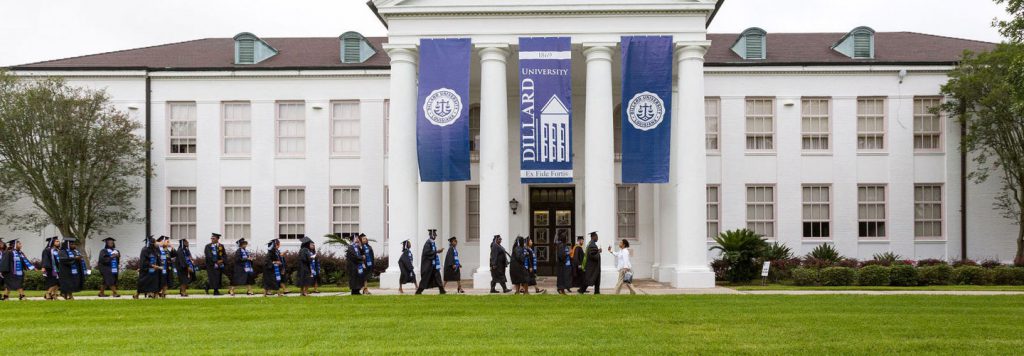







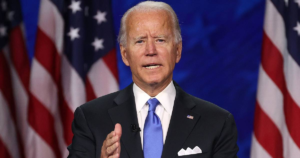
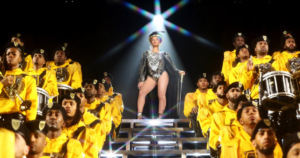

More Stories
Biden Campaign Plans Black Media Rollout To Reach Black Voters – BET
Black college president says it's time to fix Black-Jewish relations – The Washington Post
Opinion | Beyoncé's "Homecoming" is an ode to black culture — and HBCU greatness – NBC News